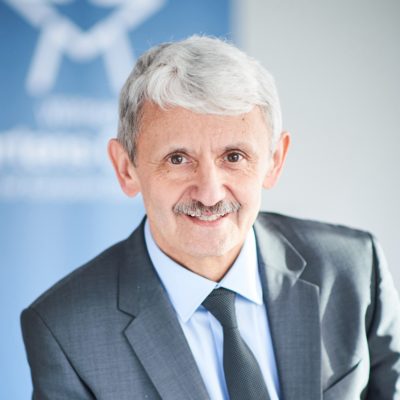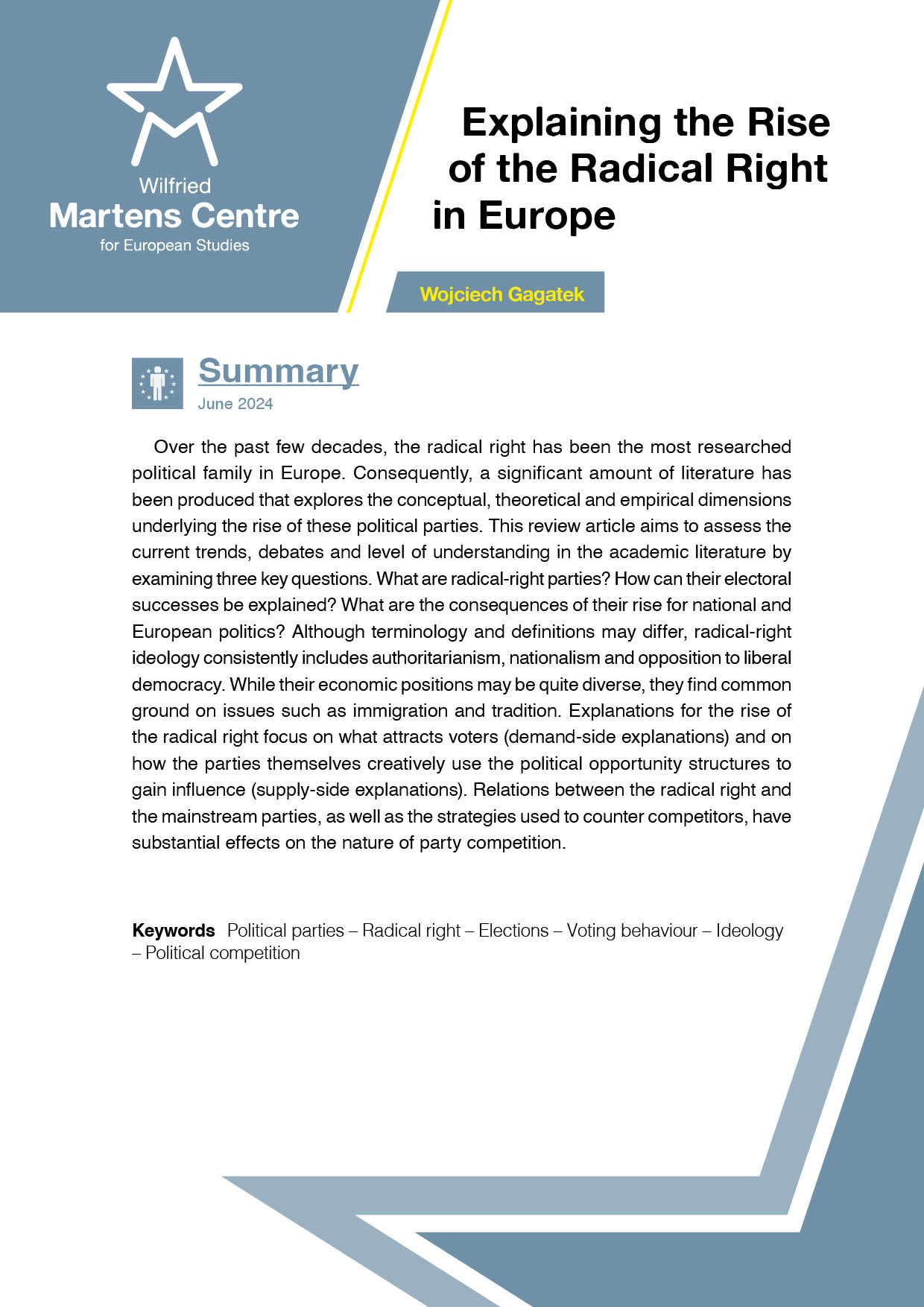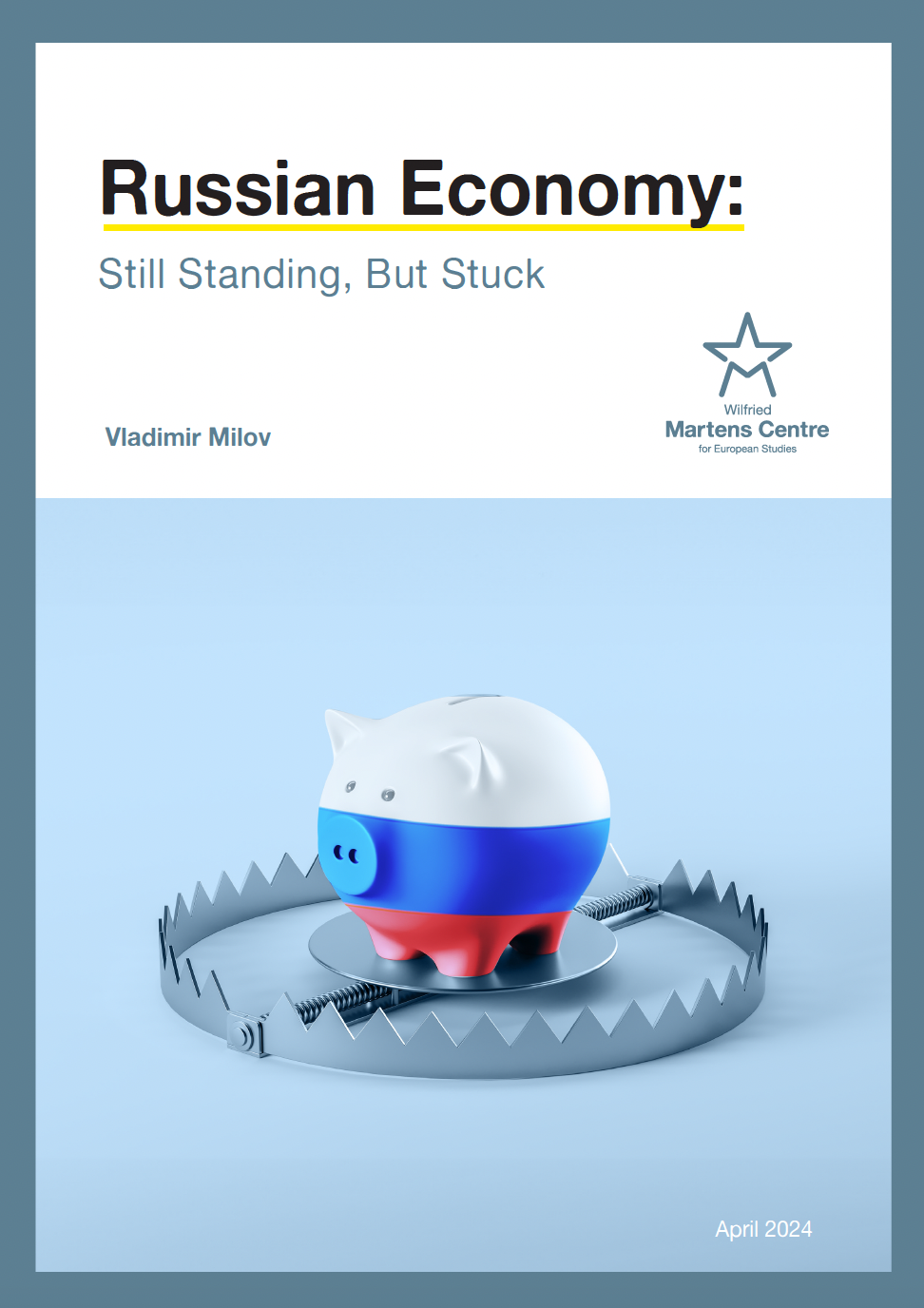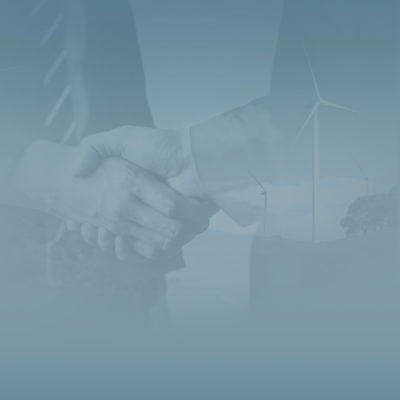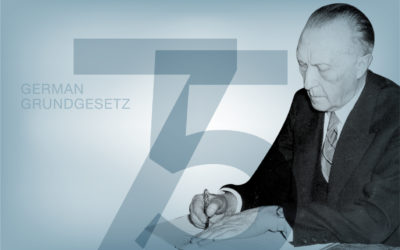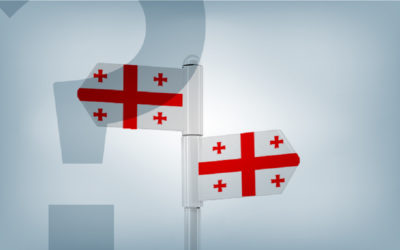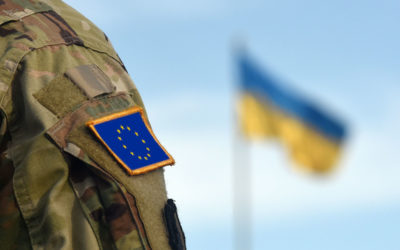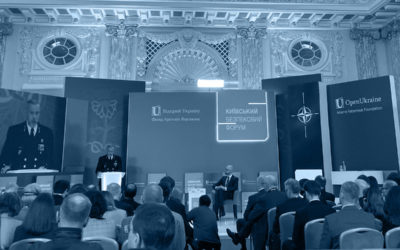What’s going on in Ukraine?
30 September 2014
Ukraine is passing through a civilisation change. Ukraine has made a fundamental strategic decision: UKRAINE DECIDED TO BELONG TO THE WEST. Similarly to how we in Slovakia decided in 1998. Russia’s reaction represents its response to this fundamental Ukrainian decision. This is no action organised by the United States, no CIA conspiracy against Russia – this is the free choice expressed by the Ukrainian people not only on Maidan, but also by electing a clearly pro-European President Poroshenko and ratifying the Association Agreement in Parliament by overwhelming majority on 16 September.
Why was Russia’s reaction to the decision of Ukraine so harsh? I believe that the main reason is that Russia strives to maintain its status of a global superpower. It is concerned about the loss of influence. And it also fears that Western influence would weaken the position of its ruling elite. The intervention in Crimea was quick and smooth because Crimea had always been, as it were, at Moscow’s disposal: the Crimean nomenclature, the ruling political elite was mentally closer to Moscow and had for years preserved considerable political and administrative independence from Kiev. Thus, it was not a big problem for Russia to intervene militarily in Crimea and to hastily organise a referendum on whether the Crimean population wants to join Russia. It was all the easier given the fact that many Russians felt in their minds and hearts that Crimea had “always” been Russian.
Why is the situation in eastern Ukraine so dramatic? The main reason is that after Russians took control of Crimea, they tried to use a similar scenario also in the Donetsk and Luhansk regions (Oblasts) of the Donbass area. However, this time Ukraine decided to defend its territory. Even at the cost of armed clashes and the loss of human lives. In the Donetsk and Luhansk regions, Russians met with a much “less warm” reception than in Crimea. In response to the determined stance of Ukraine, the EU and NATO agreed on the need to draw a red line, which is represented today by economic sanctions.
IS THIS ONLY A FEUD BETWEEN RUSSIA AND UKRAINE? The Prime Minister says that this is a GEOPOLITICAL CONTEST BETWEEN RUSSIA AND THE UNITED STATES OVER UKRAINE. That is not true. However, the confrontation between Russia and Ukraine does have a more global character. IN THIS WAY, RUSSIA IS CHALLENGING THE WEST. The West did not and does not incite Ukraine to join the EU or NATO. The West says that it will fully respect Ukraine’s choice. Just the other way around – it was Russia that was actively and openly trying to make Ukraine join its Eurasian Customs Union. The West would have accepted that choice just as it accepts Ukraine’s choice to belong to the EU. It only made it clear that Ukraine must make a choice. It is not possible to belong to both the EU and the Eurasian Union. President Yanukovich apparently played to both sides. Like asking Russia for loans. And certain “strategic” investments. We don’t know what “guarantees” he offered for these loans. But it is very likely that he raised high and unrealistic expectations by Russia. This is probably why Russia responded as it did to the ousting of Yanukovich by Maidan. The fact that Russia is challenging the West and not only Ukraine is also witnessed by reduced gas deliveries to Poland, Slovakia and Hungary. It is therefore not only Ukraine that is concerned; it is also Russia challenging the West. It is a test about how far can the Russians go. This challenge to the West also conveys a strong message for the domestic audience: it should demonstrate the strength of the ruling regime and its determination to defend Russia against the penetration of the values or ideas of the Western world into Russia. Moscow does not want its Maidan.
WHY IS THE TENSION IN AND AROUND UKRAINE SO HIGH
The basis of Western political culture is democracy. Basic tenets of democracy are free elections and pluralistic society. An essential attribute of free elections is that the government defeated in the elections hands over the power to the opposition. And, moreover, that the winner of elections shares the power it has acquired. It shares it with the opposition to which it assigns, for instance, the function of parliamentary oversight. And also with civil society, which must be allowed to freely and independently carry out its activities. Democratic governance means the de-politicisation of the police, courts and prosecution.
Russia’s problem is that – practically at all times (except perhaps for the short period of perestroika) – it had been dominated, ruled by an authoritarian regime. First by the czars, then by the Bolsheviks, later (and up to the present) by the nomenclature, called the Family. The nomenclature opposes democratisation with the argument that loosening the reins to democratisation, liberalisation and pluralism would lead to the collapse of the state. In reality, it strives to maintain its power, and its policy often includes the search for an external enemy to make people ignore problems at home.
Not only Ukraine but also Russia faces serious challenges. Both internal and external. They are, in particular, adverse demographic trends, economic dependence on extraction and export of raw materials, and also the pressure – growing, albeit slowly – of civil society towards the promotion of pluralism. Russia’s neighbourhood – from its perspective – is not exactly favourable or friendly (in the words of one participant of a recent conference in Kiev – with big China in the east, Islam with its ever stronger extremist factions in the south, liberal “decay” in the west, and cold seas and ice in the north).
For these and also other reasons, a sustainable agreement with Russia has been and will remain a problem for the West. Russia, its ruling elite, will feel increasingly vulnerable and therefore increasingly less predictable. In particular, it will be afraid of what presents the most serious threat to its political monolith. This means the West. The ruling nomenclature will do anything to prevent the Maidan spark jump over to the Red Square.
WHAT OPTIONS DOES THE WEST HAVE?
In this situation, the West has only two options: to abandon the promotion of democracy in the world, abandon the support to Ukraine, and to subsequently backtrack and yield to the authoritarian regimes in other parts of the world, allowing these regimes to get increasingly “bolder”, or to accept the challenge of and engage in a hard struggle with Russia.
The baseline of the political struggle between the West and Russia must be the conviction of its citizens and gradually also of the others that the West does not present a threat to Russia. If anything, it presents a threat to its political monolith, the establishment, the nomenclature. The determination of the West to accept the challenge of Russia and respond to it has taken the form of economic sanctions imposed on Russia. The more often Fico criticises the sanctions, the more often it should be repeated to the citizens: ECONOMIC SANCTIONS HAVE BEEN IMPOSED ON RUSSIA BY THE EU. THIS MEANS BY INDIVIDUAL MEMBER STATES, INCLUDING SLOVAKIA. THUS, AS REGARDS SLOVAKIA, ECONOMIC SANCTIONS HAVE BEEN IMPOSED ON RUSSIA BY THE GOVERNMENT OF ROBERT FICO.
I do not criticise this decision of Robert Fico’s government. I do not criticise this decision because I perceive it as a fundamental, principled response of the West to the Russian challenge, and I consider it to be the best of available responses. However, I do criticise Prime Minister’s statements regarding the sanctions that received also his approval. It is highly immoral and damaging for Slovakia when the Prime Minister approves sanctions in Brussels on Monday, only to subject them to harsh criticism at home, in Slovakia, on Tuesday. Such conduct leads to distorting the truth, turning things upside down, confusing the cause and effect. All this leads to the rise of primitive anti-Americanism, opposition to the EU, and the subsequent polarisation, flaring of tempers, but mainly to the loss of Slovakia’s reputation. I do not recall any ambassador of a neighbouring country having ever commented the statements by the Slovak Prime Minister the way the Ukrainian ambassador did referring to Robert Fico: Robert Fico talks like a bad neighbour.
Ukraine is facing serious challenges. The most serious of them is the defence of its sovereignty and territorial integrity. Ukraine has made its choice. It is defending its rights, even at the highest cost: the cost of human lives. That is one reason for its successful defence efforts. This is also the reason why Ukraine should be helped. Especially in the MORAL sense. I appeal to Prime Minister Fico to stop falsely claiming that Ukraine is breaking down, that Ukraine is falling apart. Such statements are false and cynically inappropriate. They harm Slovakia and do not help Ukraine. Who they help are the aggressors who want Ukraine to disintegrate.
Besides this crucial and vitally important challenge, Ukraine is facing and will continue to face three truly monumental and several major challenges. (Môj návrh: Ukraine is facing and will continue to face a few truly monumental and a number of major challenges.) Monumental challenges are, in our opinion, modernisation of its economy, restructuring of its industry, stabilisation of its currency and the financial sector, diversification of energy sources, and resolution of its defence capability and security issues.
These challenges are also challenges for the West. It is true that no one will do for Ukrainians what they must do themselves. But the West must help them. In each of these areas. It is commendable and encouraging that Slovakia has contributed by ensuring the reverse flow of gas to Ukraine. The Slovak Government deserves praise for having mastered this process much earlier than it had been initially indicated. But, by no means is it possible to claim victory. The fact that Russia is challenging not only Ukraine but also the West is documented by reduced deliveries of Russian gas to Poland, to our country, and to Hungary.
But there are many other serious challenges that Ukraine is and will be facing, such as the need to combat corruption, decentralise and streamline public administration, improve the quality of education, healthcare, modernise the pension system.
Not only the West but also Slovakia as its part have things to offer to Ukraine. Like moral and political support, and also experience with the transition process and reforms. This is also in the supreme interest of Slovakia, and not only of the regions in the eastern part of the country.
Among those who spoke in the opening section of the already mentioned conference which was held on 11-13 September in Kiev was the frontman of Ukrainian band “Okean Elzy”, Svyatoslav Vakarchuk. He is one of the most visible faces of Maidan. The last question he was asked was: What does Ukraine expect the West to do? Svyatoslav paused in thought. I expected he would make a request for financial or military assistance, a kind of a new Marshall Plan … But after some thought, Vakarchuk said: What is going on in Ukraine right now is painful for us. And we realise there still will be a lot of pain for us to bear. It would be good if also the West could bear and withstand some pain. Because, if the West does not do it and is not ready to do it at a lesser scale now, it will also suffer much pain later.
I understood what he meant. And I am convinced there are many of us who understand.
ENJOYING THIS CONTENT?


